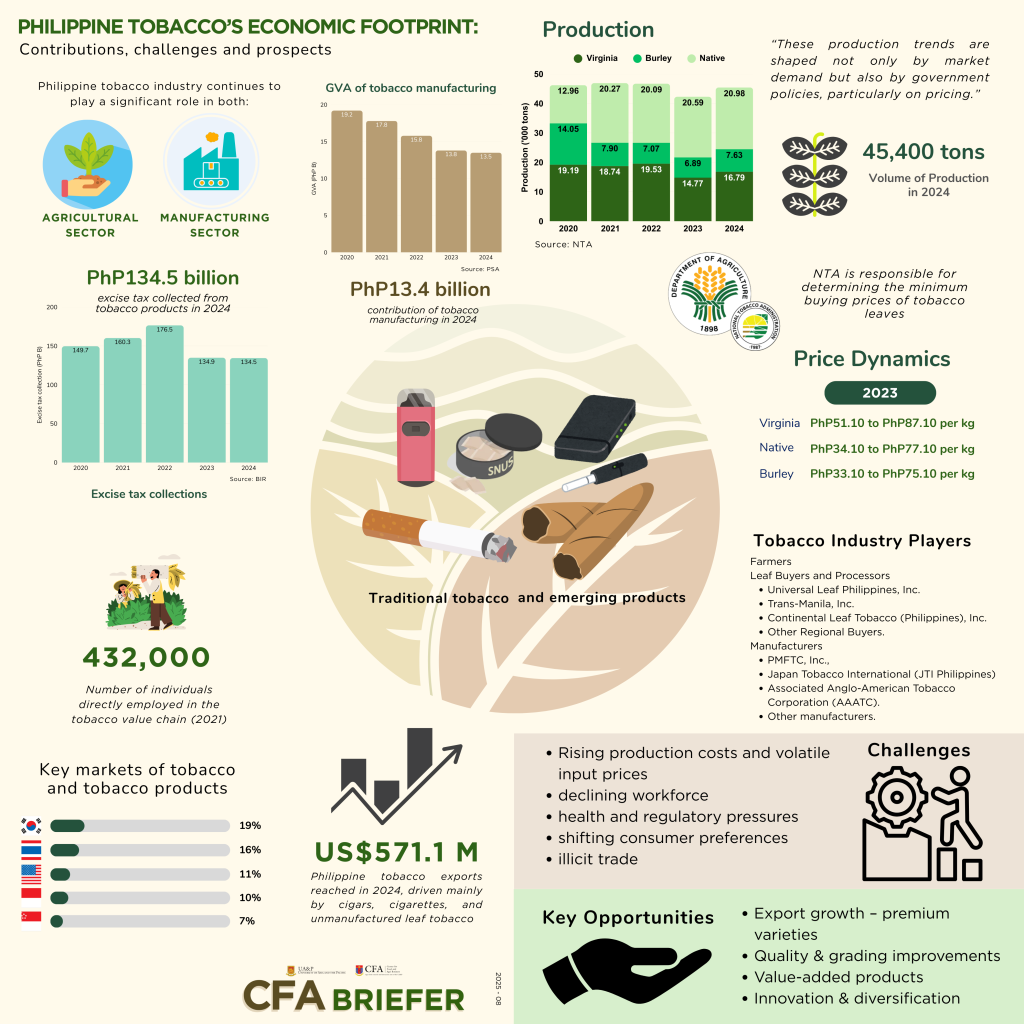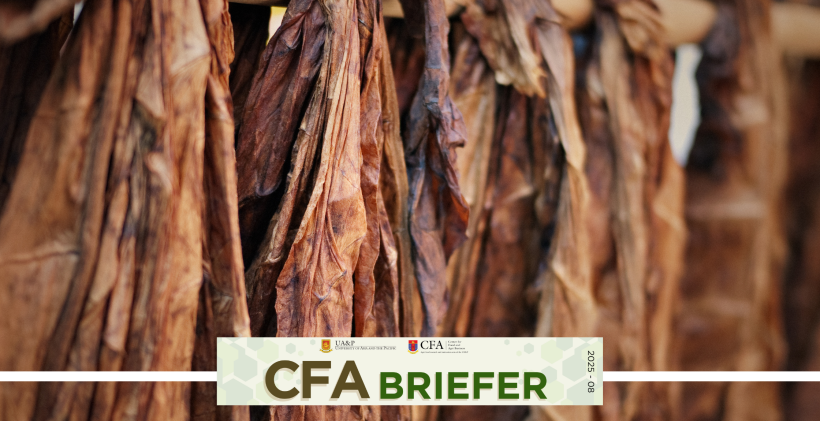This article examines the Philippine tobacco industry’s economic footprint, focusing on its contributions and challenges. It reviews the sector’s role in generating income, employment, and government revenues, while tackling concerns over regulations, illicit trade, and shifting markets. The discussion underscores resilience and competitiveness, offering insights on how the industry can adapt and sustain relevance.
by Joy Kristel L. Orzales, Senior Agribusiness Specialist, Center for Food and Agri Business, UA&P
THE PHILIPPINE TOBACCO INDUSTRY continues to play a significant role in both the agricultural and manufacturing sectors. Despite facing growing health concerns and changing consumer behaviors, the industry remains an economic mainstay in certain regions of the country, particularly Ilocos Region and Cagayan Valley. It sustains rural livelihoods, generates employment across farming and manufacturing, contributes to export earnings, and provides substantial government revenues through excise taxes.

Do you want to read the full article? Please answer this form and we will send the article to your email address.

